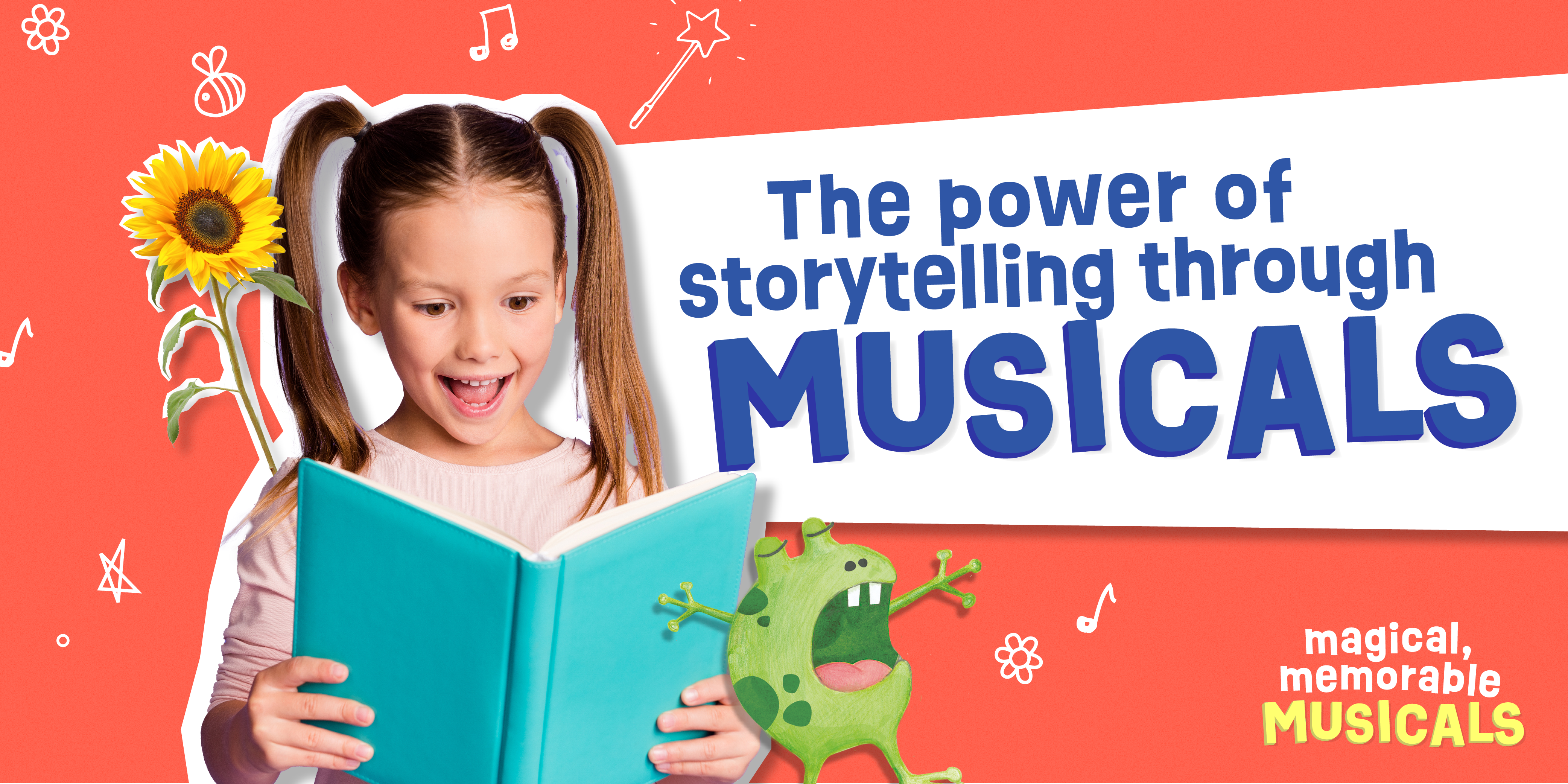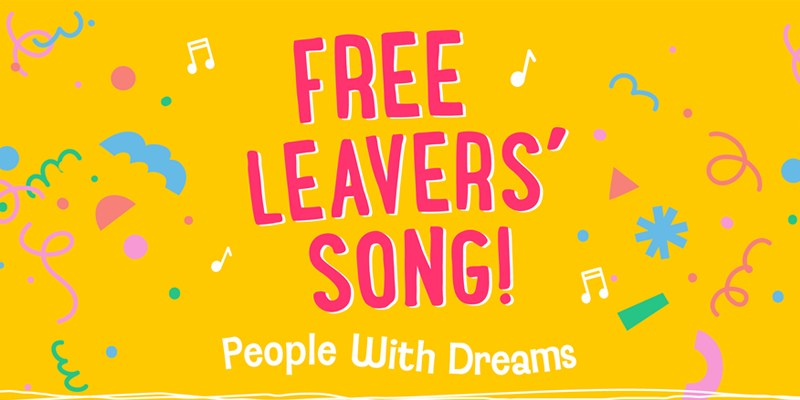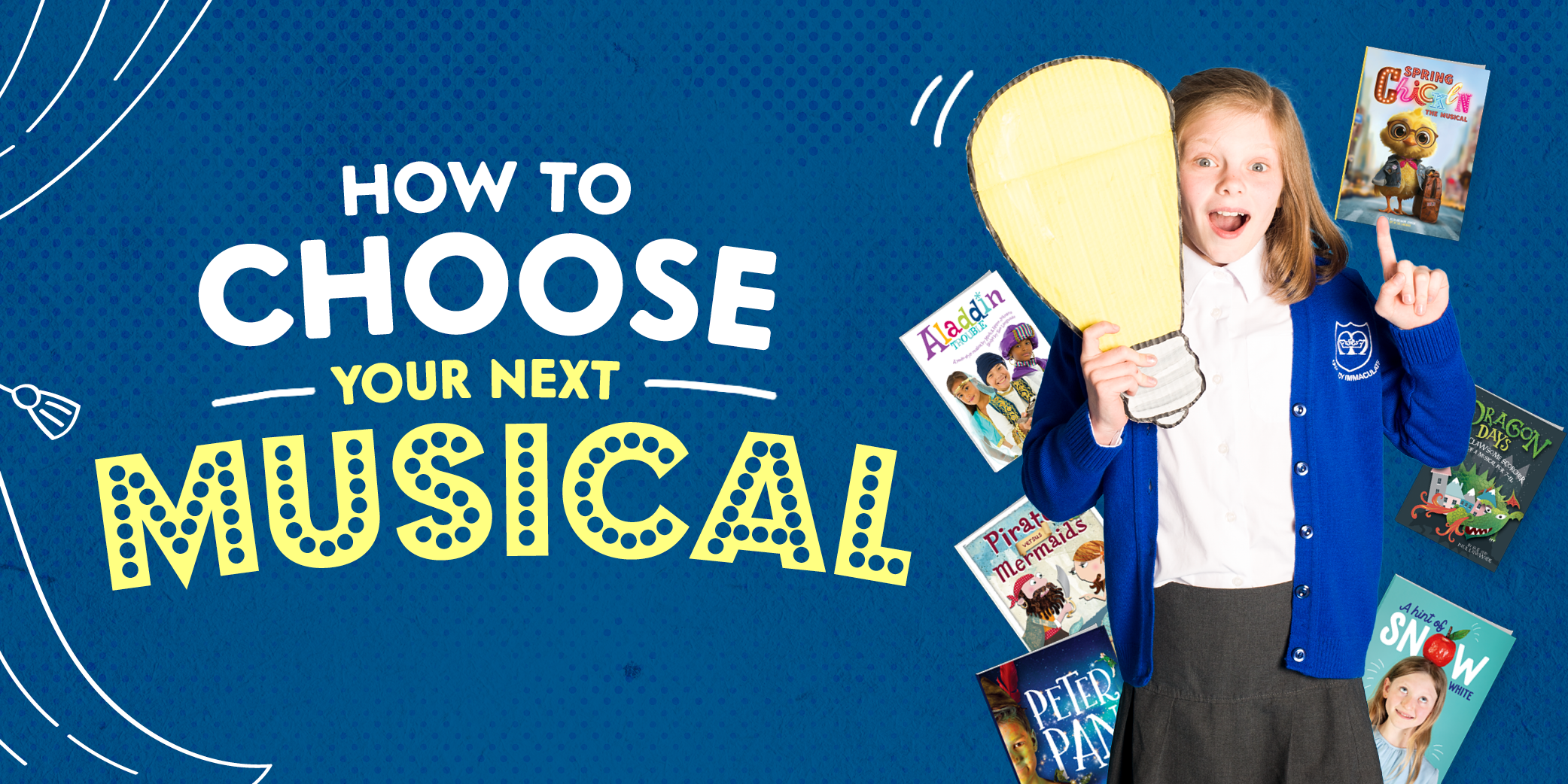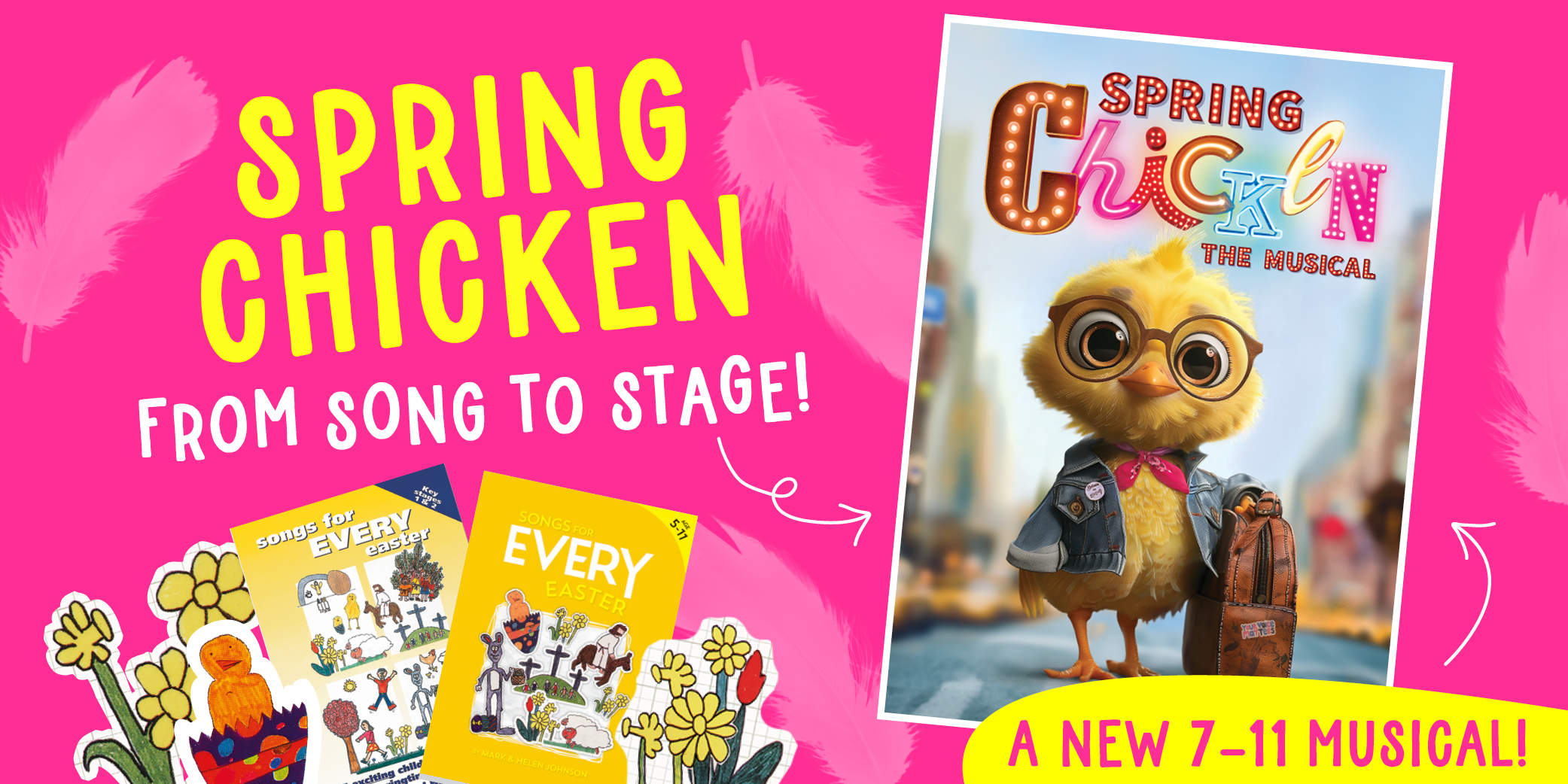
Did you know, when you Google the term ‘Storytelling’, it’ll present you with Harvard Business Review reports about how ‘storytelling is a powerful tool for persuasion’, or how it’s ‘a vital marketing tool’. I’ve never seen storytelling as a means of manipulating customers. Whilst this kind of content might give storytelling a bad name, it proves exactly what I set out to write about today – that storytelling is rather powerful stuff, whether you’re capturing the attention of a small child with a BIG imagination, or you’re a lawyer trying to connect with his or her jury. I’d like to home in on the context closest to my heart; the power of storytelling through musicals.
Of course, school life isn’t only about learning. Among many other things, it’s a place for connecting with others — it’s a safe space to fail and try again, it’s where we’re encouraged to think bigger, dream wider and learn to use our imaginations to unlock our creativity. Musicals tick all of these boxes, and here’s how:
- Class connection: you’re a part of a community that is working towards a specific goal (putting on a great show!) together.
- Character development: your cast has to learn to empathize with the characters in order to understand and portray them. They need to develop how that character might feel, think, walk and talk. These are valuable interpersonal skills.
- Safe space: the nature of rehearsals means that children are given the space to get it wrong and try again, as everyone is learning this new thing together.
- Opportunities to be creative: when putting on a musical in school, the process is bursting with creativity from start to finish, and you are all immersed in a world of imagination, be it through set design, choreography, lighting, singing, acting – the list is endless.
Writing an Out of the Ark musical isn’t about just knowing the characters, the sequence of events and putting it all together in a two-act, child-friendly production. For me, it’s about really diving into the characters: their thoughts, their feelings, their daily habits and even morning routines. It’s about bringing them to life — without this, there’s no way for the audience connect with them, which makes the whole thing pretty pointless.
Often, the stories we know and love contain real people, with real flaws and imperfections (we’re not all walking, talking Disney princesses, much as some of us would like to be!). We’re all craving connection — the itch that all good musicals will scratch. Some of us are Punchinellos: looking for somewhere to belong. Some of us are Wendy Darlings: craving a Neverland-shaped adventure. Some of us are White Rabbits: ever charming, but never prompt!
The act of putting on a musical is one based upon connection, collaboration and creation — as a class and a cast. The best kind of storytelling is, for me, all about connection — seeing a bit of yourself in a character, their situation, a song, or even just a line of dialogue. There’s something familiar, safe and comforting about identifying with a character and having them express feelings that perhaps you relate to or have never had the words to pin down exactly. Of course, some of the magic of storytelling and musicals is the sheer fun of it and the escape from our day-to-day existence. Who doesn’t want to be thrown into Alice’s Wonderland – talking rabbits and all?
Out of the Ark’s musicals are absolutely FULL of values that we all could do with more of — from the importance of friendship, however unlikely (such as in The Wind in the Willows), or the power of dreaming a little bigger, to Neverland and back (Peter Pan), or the vital message that, you are valued, loved and are ‘more than how you’re feeling on your best or worst day’ (You Are Special).
There are so many ways in which you can incorporate storytelling into your day-to-day routines, as well as getting the most out of the power of storytelling in your school musicals.
- Class reading: this is an obvious one, but such a great way to connect as a class and broaden our imaginations.
- Creative writing: perhaps your class could make up their own superheroes. What do they look like, what is their power? (Mine would be ‘Coffee Girl – saving the world, one cup at a time’!)
- Creative storytelling: as a class, try sitting in a circle, and saying one sentence each, forming the story. ‘Once upon a time…’
- Character development: when putting on a musical, ask the children to expand the character in their own minds — this is a great way to warm up and get thinking creatively. For example, ask, ‘what’s Peter Pan’s favourite ice-cream flavour, and why’?
- Story expansion — prequels and sequels: ask the children to come up with a story that goes with the musical you’re putting on as a class. For example, ‘where did Mr Smee grow up?’; ‘What was Mr Toad’s next adventure?’.
- A bonus idea: get your hands on the book You Choose by Pippa Goodhart. The book consists of beautiful illustrations by Nick Sharratt, inviting the reader to dream up a character: where they’d live, what they’d eat, how they’d dress, and so on. This book is an arms-wide-open invitation to exploration and imagination!
So, whoever you are (whether you’re playing a tree in your debut school production, a busy teacher directing this year’s ‘it’s behind you’ sequence, or a proud grandparent watching your thirteenth reprise of Annie with the same ear-to-ear grin on your face as on the first viewing!), never underestimate the impact and magic of storytelling, and its power to connect us.




